|
|
 |
| < Back 1 2 3 4 5 6 7 8 9 10 11 12 13 14 15 16 17 18 19 20 21 22 23 24 25 26 27 28 29 30 Next > |
|
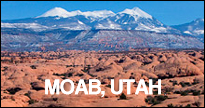
 1999–Musician, Doug Sahm, dies of a heart attack in his sleep in a motel room in Taos, New Mexico, at age 58. He had a big hit with She’s About a Mover by The Sir Douglas Quintet. He followed it with a long solo recording career and some time with the Tex-Mex band, The Texas Tornadoes. 1999–Musician, Doug Sahm, dies of a heart attack in his sleep in a motel room in Taos, New Mexico, at age 58. He had a big hit with She’s About a Mover by The Sir Douglas Quintet. He followed it with a long solo recording career and some time with the Tex-Mex band, The Texas Tornadoes.



|
 |
|
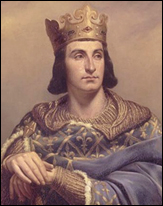 326–The old St. Peter's Basilica is consecrated. 326–The old St. Peter's Basilica is consecrated.
401–The Visigoths, led by King Alaric I, cross the Alps and invade northern Italy.
1095–The Council of Clermont begins. Called by Pope Urban II, it leads to the First Crusade to the Holy Land.
1105–Maginulfo is elected the Antipope as Sylvester IV.
1180–Phillip II becomes King of France.
1210–Pope Innocent III excommunicates Holy Roman Emperor Otto IV.
1282–Pope Martin IV excommunicates King Peter III of Aragon.
1302–Pope Boniface VIII issues the Papal bull Unam sanctam, claiming spiritual supremacy for the papacy.
1307–According to legend, William Tell shoots an apple off his son's head.
1421–A seawall at the Zuiderzee dike in the Netherlands breaks, flooding 72 villages and killing 10,000 people.
1493–Christopher Columbus first sights the island now known as Puerto Rico.
1494–French King Charles VIII occupies Florence, Italy.
1601–Tiryaki Hasan Pasha, provincial governor of the Ottoman Empire, defeats Habsburg forces, commanded by Ferdinand the Archduke of Austria, during the Siege of Nagykanizsa.
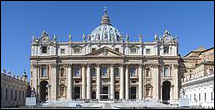 1623–Chinese Emperor, Zhu Youlang, is born in China. He was the fourth and last emperor of the Southern Ming Dynasty of China. 1623–Chinese Emperor, Zhu Youlang, is born in China. He was the fourth and last emperor of the Southern Ming Dynasty of China.
1626–The new St. Peter's Basilica is consecrated.
1730–The future Frederick II (known as Frederick the Great), King of Prussia, is granted a royal pardon and released from confinement.
1803–The Battle of Vertières, the last major battle of the Haitian Revolution, is fought, leading to the establishment of the Republic of Haiti, the first black republic in the Western Hemisphere.
1809–In a naval action during the Napoleonic Wars, French frigates defeat British East Indiamen in the Bay of Bengal.
1812–During the Napoleonic Wars, the Battle of Krasnoi ends in French defeat, but Marshal of France Michel Ney's leadership leads to him becoming known as "the bravest of the brave."
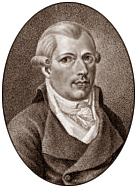 1830–Philosopher and academic, Adam Weishaupt, dies in Gotha, Saxe-Coburg-Gotha, at age 82. He founded the Order of the Illuminati, a secret society. 1830–Philosopher and academic, Adam Weishaupt, dies in Gotha, Saxe-Coburg-Gotha, at age 82. He founded the Order of the Illuminati, a secret society.
1863–King Christian IX of Denmark signs the November constitution that declares Schleswig to be part of Denmark. This is seen by the German Confederation as a violation of the London Protocol and leads to the German-Danish war of 1864.
1865–Mark Twain's first fictional piece, “The Celebrated Jumping Frog of Calaveras County" appears in the last issue of The Saturday Press. Hitherto unknown, Twain becomes an instant success. He is the first author to type a manuscript and double-space it for his editor's convenience.
1878–Soprano, Marie Selika Williams, became the first black artist to perform at the White House in Washington, D.C.
1883–American and Canadian railroads institute five standard continental time zones, ending the confusion of thousands of local times.
1886–Chester A. Arthur, 21st President of the United States, dies of a cerebral hemorrhage in New York, New York, at age 57. The day before his death, he ordered nearly all of his papers, both personal and official, to be burned. He succeeded James A. Garfield after his assassination. Suffering from poor health, Arthur made only a limited effort to secure the Republican Party's nomination in 1884. He, instead, retired at the close of his term.
1901–Britain and the United States sign the Hay-Pauncefote Treaty, which nullifies the Clayton-Bulwer Treaty, and withdraws British objections to an American-controlled canal in Panama.
 1901–George (Horrace) Gallup, originator of the Gallup Poll, is born in Jefferson, Iowa. The Gallup Poll is a successful statistical method of survey sampling for measuring public opinion. 1901–George (Horrace) Gallup, originator of the Gallup Poll, is born in Jefferson, Iowa. The Gallup Poll is a successful statistical method of survey sampling for measuring public opinion.
1903–The Hay-Bunau-Varilla Treaty is signed by the United States and Panama, giving the U.S. exclusive rights over the Panama Canal Zone.
1904–General Esteban Huertas steps down after the government of Panama fears he wants to stage a coup.
1905–Prince Carl of Denmark becomes King Haakon VII of Norway.
1908–Comedienne, Imogene Coca, is born Emogeane Coca in Philadelphia, Pennsylvania. She was best known as a regular performer on the 1950s TV variety series Your Show of Shows. She has her own TV series The Imogene Coca Show (1954-1955). She appeared in the films Promises! Promises!, Under the Yum Yum Tree, Rabbit Test, National Lampoon’s Vacation, and Nothing Lasts Forever. She was married to actor, King Donovan.
1909–Two U.S. warships are sent to Nicaragua, after 500 revolutionaries (including two Americans) are executed by order of José Santos Zelaya.
1909–Songwriter, Johnny Mercer, is born John Herndon Mercer in Savannah, Georgia. He wrote the lyrics for a number of award winning songs, including Hooray for Hollywood, Fools Rush In, Blues in the Night, Skylark, That Old Black Magic, One for My Baby and One More for the Road, Come Rain or Come Shine, Autumn Leaves, Moon River, Days of Wine and Roses, and Summer Wind. He was also the founder of Capitol Records.
1916–In France, British Expeditionary Force commander, Douglas Haig, calls off the First Battle of the Somme, which started on July 1, 1916.
 1918–Latvia declares its independence from Russia. 1918–Latvia declares its independence from Russia.
1920–The Apollo Theater opens in New York City.
1926–George Bernard Shaw refuses to accept the money for his Nobel Prize, saying, "I can forgive Alfred Nobel for inventing dynamite, but only a fiend in human form could have invented the Nobel Prize."
1928–The first successful sound-synchronized animated cartoon is Walt Disney’s, Steamboat Willie, starring Mickey Mouse.
1928–George Gershwin finishes composing An American in Paris.
1929–Off the south coast of Newfoundland, in the Atlantic Ocean, a 7.2 submarine earthquake, centered on the Grand Banks, breaks 12 submarine transatlantic telegraph cables and triggers a tsunami that destroys many south coast communities in the Burin Peninsula.
1930–Soka Kyoiku Gakkai, a Buddhist association later renamed Soka Gakkai, is founded by Japanese educators, Tsunesaburo Makiguchi and Josei Toda.
1932–The 5th Annual Academy Awards announces its winners. Best Picture: Grand Hotel; Best Actor: Fredric March for Dr. Jekyll and Mr. Hyde and Wallace Beery for The Champ (tie); Best Actress: Helen Hayes for The Sin of Madelon Claudet; Best Director: Frank Borzage for Bad Girl. The ceremonies are held at the Ambassador Hotel, Los Angeles, California. The host is Conrad Nagel.
1938–Trade union members elect John L. Lewis as the first president of the Congress of Industrial Organizations.
1939–Novelist, poet, essayist, and environmentalist, Margaret (Eleanor) Atwood, is born in Ottawa, Ontario, Canada. Atwood is best known for her historical fiction and science fiction. Her novel, The Handmaid's Tale, received the first Arthur C. Clarke Award in 1987. She has also written 15 books of poetry. Atwood is a founder of the Writers' Trust of Canada, and a founding trustee of the Griffin Poetry Prize.
 1940–German leader, Adolf Hitler, and Italian Foreign Minister, Galeazzo Ciano, meet to discuss Benito Mussolini's disastrous Italian invasion of Greece. 1940–German leader, Adolf Hitler, and Italian Foreign Minister, Galeazzo Ciano, meet to discuss Benito Mussolini's disastrous Italian invasion of Greece.
1941–Actor, David Hemmings, is born David Edward Leslie Hemmings in Guilford, Surrey, England. He appeared in the films Sink the Bismark!, Play It Cool, Some People, Live It Up!, The System, Be My Guest, Blowup, Camelot, Barbarella, The Best House in London, The Walking Stick, Unman, Wittering and Zigo, The Love Machine, Juggernaut, Man, Woman and Child, Gladiator, Last Orders, and The League of Extraordinary Gentlemen. He was married to actress, Gayle Hunnicutt.
1941–Politician, Chris Watson, dies at his home in Sydney, New South Wales, Australia, at age 74. He was the third Prime Minister of Australia.
1942–Actress, Susan (Michaela) Sullivan, is born in New York, New York. She is best known for the roles of Lenore Curtin Delaney on the soap opera Another World, Maggie Gioberti Channing on the TV series Falcon Crest, and Kitty Montgomery on the sitcom Dharma & Greg.
1943–During World War II, 440 Royal Air Force planes bomb Berlin. Germany, causing only light damage, but killing 131 people. The RAF loses nine aircraft and 53 air crew.
1944–The Popular Socialist Youth is founded in Cuba.
1947–The Ballantyne's Department Store fire in Christchurch, New Zealand, kills 41 people. It is the worst fire disaster in the history of New Zealand.
1949–The Iva Valley Shooting occurs after the coal miners of Enugu, in Nigeria, go on strike over withheld wages: 21 miners are shot dead and 51 others are wounded by police under the supervision of the British colonial administration of Nigeria.
1952–Artist, Paul Éluard, dies in Charenton-le-Pont, France. He was one of the founders of the Surrealist movement. His later work, after the Spanish Civil War, had changed to the rejection of tyranny, suffering, brotherhood, and a search for happiness.
 1961–President John F. Kennedy sends 18,000 military advisors to South Vietnam. 1961–President John F. Kennedy sends 18,000 military advisors to South Vietnam.
1963–Bell Telephone introduces the push-button telephone.
1969–Joseph P. Kennedy, Sr., patriarch of America’s political Kennedy family, dies in Hyannis Port, Massachusetts, at age 81. Kennedy was a leading member of the Democratic Party and of the Irish Catholic community. He was the 44th U.S. Ambassador to the United Kingdom. His sons were Joseph P. Kennedy, Jr., President John F. Kennedy, Senator Robert F. Kennedy, and Senator Edward “Ted” Kennedy.
1970–President Richard Nixon asks the U.S. Congress for $155 million in supplemental aid for the Cambodian government.
1970–Jerry Lee Lewis and Myra Brown are divorced in Memphis, Tennessee.
1972–Danny Whitten, former singer-songwriter for Neil Young's Crazy Horse, dies in Los Angeles, California, of a heroin overdose.
1973–A chart topper: Photograph by Ringo Starr.
1978–In Jonestown, Guyana, Jim Jones orders his Peoples Temple mwmbersto a mass murder-suicide that claims 918 lives in all, 909 of them in Jonestown itself, including over 270 children. U.S. Congressman, Leo Ryan, was murdered by members of the Peoples Temple hours earlier. Jones dies from a gunshot wound to the head (suspected to be suicide) at age 47.
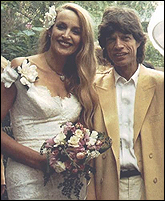 1987–In London, England, 31 people die in a fire at the city's busiest underground station, King's Cross St. Pancras. 1987–In London, England, 31 people die in a fire at the city's busiest underground station, King's Cross St. Pancras.
1988–President Ronald Reagan signs a bill into law allowing the death penalty for drug traffickers.
1990–At a rock memorabilia auction, Paul McCartney’s birth certificate sells for $18,000.
1990–Rocker, Mick Jagger, marries model-actress, Jerry Hall, in Bali, Indonesia.
1991–Shiite Muslim kidnappers in Lebanon release Anglican Church envoys, Terry Waite and Thomas Sutherland.
1991–After an 87-day siege, the Croatian city of Vukovar capitulates to the besieging Yugoslav People's Army and allied Serb paramilitary forces.
1993–The North American Free Trade Agreement (NAFTA) is approved by the U.S. House of Representatives.
1993–In South Africa, 21 political parties approve a new constitution, expanding voting rights and ending white minority rule.
1994–Bandleader, Cab Calloway, dies from a stroke in Hockessin, Delaware, at age 86. He was associated with the Cotton Club in Harlem, New York City, where he was a regular performer. His biggest hit was Minnie the Moocher.
1996–A fire occurs on a train traveling through the Channel Tunnel from France to England, causing several injuries and damaging approximately 1,600 feet of the tunnel.
 1999–Musician, Doug Sahm, dies of a heart attack in his sleep in a motel room in Taos, New Mexico, at age 58. He had a big hit with She’s About a Mover by The Sir Douglas Quintet. He followed it with a long solo recording career and some time with the Tex-Mex band, The Texas Tornadoes. 1999–Musician, Doug Sahm, dies of a heart attack in his sleep in a motel room in Taos, New Mexico, at age 58. He had a big hit with She’s About a Mover by The Sir Douglas Quintet. He followed it with a long solo recording career and some time with the Tex-Mex band, The Texas Tornadoes.
2002–During the Iraq disarmament crisis, United Nations weapons inspectors. led by Hans Blix. arrive in Iraq.
2002–Actor, James Coburn, dies of a heart attack in Beverly Hills, California, at age 74. He appeared in the films Ride Lonesome, The Magnificent Seven, Hell Is for Heroes, The Great Escape, Charade, The Americanization of Emily, Our Man Flint, In Like Flint, The President’s Analyst, Pat Garrett and Billy the Kid, The Last of Sheila, Harry in Your Pocket, and Young Guns II.
2003–In the United Kingdom, the Local Government Act 2003, repealing controversial anti-gay amendment Section 28, becomes effective.
2003–The Massachusetts Supreme Judicial Court rules 4-3 in Goodridge v. Department of Public Health, that the state's ban on same-sex marriage is unconstitutional and gives the state legislature 180 days to change the law. This makes Massachusetts the first state in the United States to grant marriage rights to same-sex couples.
2004–Songwriter, Cy Coleman, dies of cardiac arrest in New York, New York, at age 75. He wrote Witchcraft and The Best is Yet to Come with his partner, Carolyn Leigh.
2012–Pope Tawadros II of Alexandria becomes the 118th Pope of the Coptic Orthodox Church of Alexandria.
2013–NASA launches the MAVEN probe to Mars.
2016–The U.S. Court of Appeals for the Seventh Circuit denies the release of Brendan Dassey, subject of the 2015 documentary series Making a Murderer.
2016–The New York Attorney General announces that Donald Trump has settled three lawsuits by former students of Trump University for $25 million.
2016–China's Shenzhou 11 returns to Earth after completing China's longest manned space mission to date.
PHOTOS TOP TO BOTTOM: Philip II, King of France; St. Peter's Basilica; Adam Weishaupt; George Gallup; Walt Disney's cartoon Steamboat Willie; David Hemmings; a push-button telephone; Mick Jagger and Jerry Hall on their wedding day in 1990; and Doug Sahm.
|
|
| < Back 1 2 3 4 5 6 7 8 9 10 11 12 13 14 15 16 17 18 19 20 21 22 23 24 25 26 27 28 29 30 Next > |
|
|